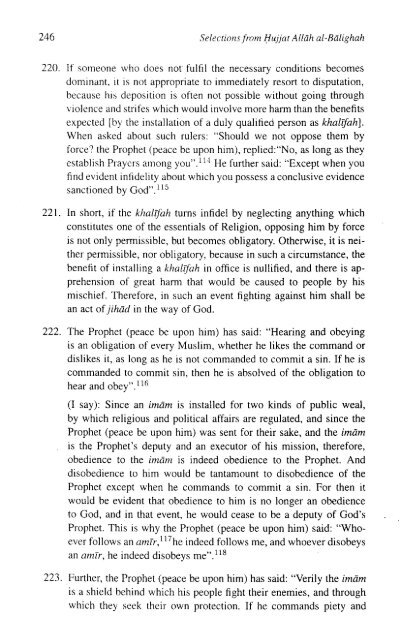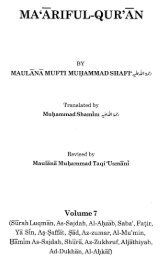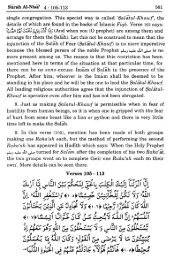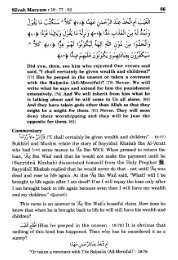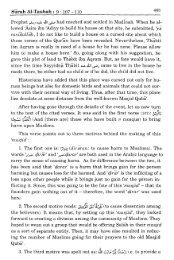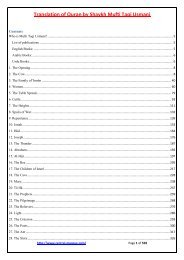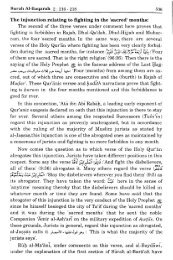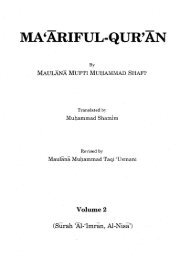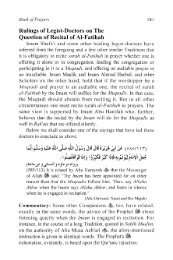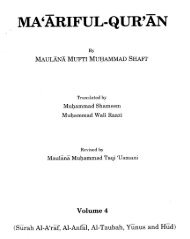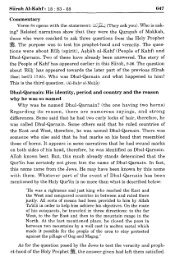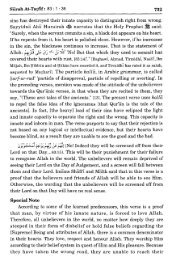Socio Political Thought Of Shah WaliAllah Rahmatullahi Alaihi
Socio Political Thought Of Shah WaliAllah Rahmatullahi Alaihi
Socio Political Thought Of Shah WaliAllah Rahmatullahi Alaihi
Create successful ePaper yourself
Turn your PDF publications into a flip-book with our unique Google optimized e-Paper software.
246 Selections frorn Hujjat Alldh al-Balighah<br />
If someone who does not fulfil the necessary conditions becomes<br />
dominant, it is not appropriate to immediately resort to disputation,<br />
because his deposition is often not possible without going through<br />
violence and strifes which would involve more harm than the benefits<br />
expected [by the installation of a duly qualified person as khal$ah].<br />
When asked about such rulers: "Should we not oppose them by<br />
force? the Prophet (peace be upon him), replied:"No, as long as they<br />
establish Prayers among He further said: "Except when you<br />
find evident infidelity about which you possess a conclusive evidence<br />
sanctioned by ~od". l5<br />
In short, if the khalgah turns infidel by neglecting anything which<br />
constitutes one of the essentials of Religion, opposing him by force<br />
is not only permissible, but becomes obligatory. Otherwise, it is neither<br />
permissible, nor obligatory, because in such a circumstance, the<br />
benefit of installing a khalllfah in office is nullified, and there is apprehension<br />
of great harm that would be caused to people by his<br />
mischief. Therefore, in such an event fighting against him shall be<br />
an act of jihad in the way of God.<br />
222. The Prophet (peace be upon him) has said: "Hearing and obeying<br />
is an obligation of every Muslim, whether he likes the command or<br />
dislikes it, as long as he is not commanded to commit a sin. If he is<br />
commanded to commit sin, then he is absolved of the obligation to<br />
hear and obey".""<br />
(I say): Since an imam is installed for two lunds of public weal,<br />
by which religious and political affairs are regulated, and since the<br />
Prophet (peace be upon him) was sent for their sake, and the imam<br />
is the Prophet's deputy and an executor of his mission, therefore,<br />
obedience to the imam is indeed obedience to the Prophet. And<br />
disobedience to him would be tantamount to disobedience of the<br />
Prophet except when he commands to commit a sin. For then it<br />
would be evident that obedience to him is no longer an obedience<br />
to God, and in that event, he would cease to be a deputy of God's<br />
Prophet. This is why the Prophet (peace be upon him) said: "Whoever<br />
follows an amir,'17he indeed follows me, and whoever disobeys<br />
an amir, he indeed disobeys me".'18<br />
223. Further, the Prophet (peace be upon him) has said: "Verily the imam<br />
is a shield behind which his people fight their enemies, and through<br />
which they seek their own protection. If he commands piety and


